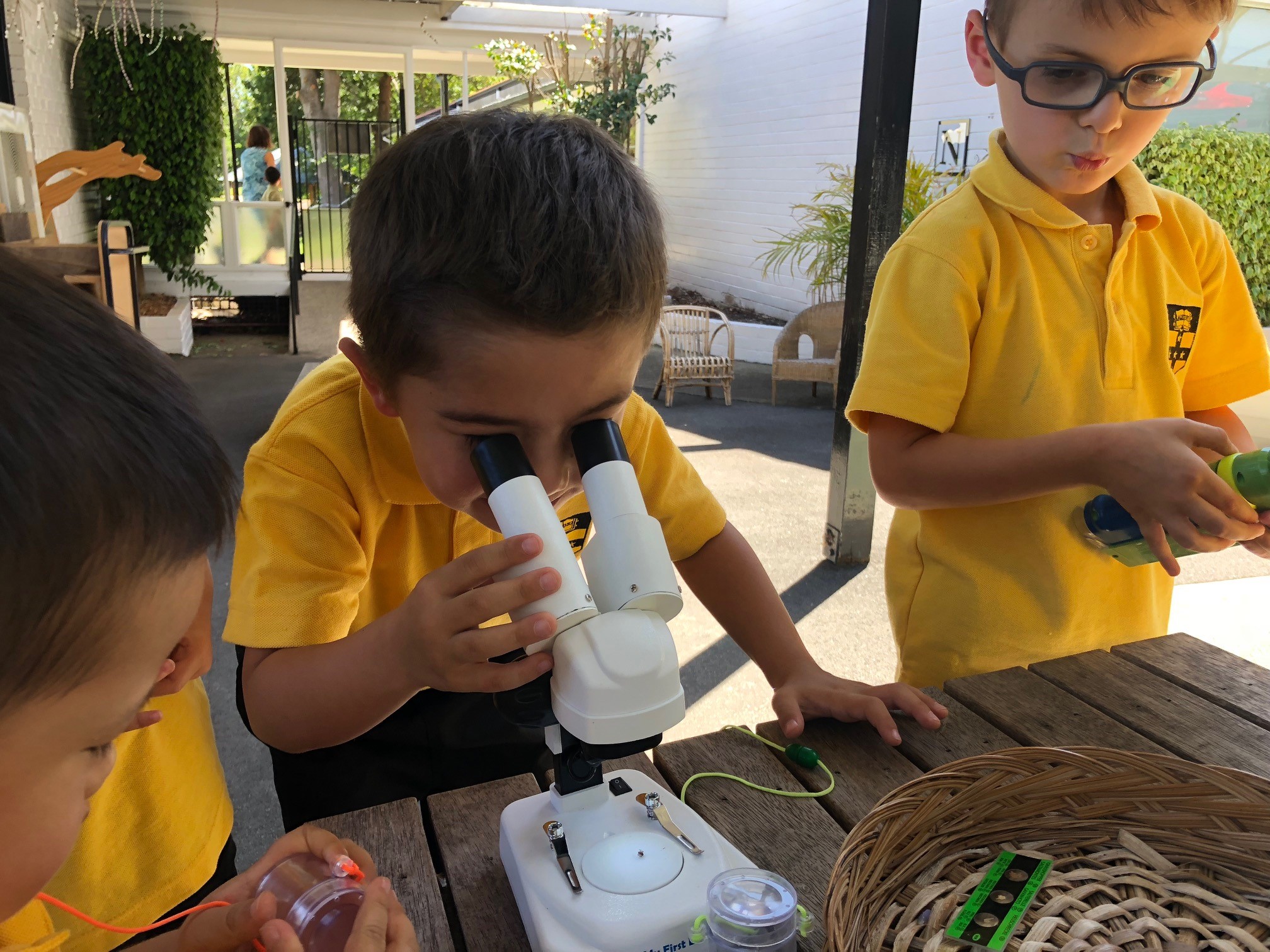
Preschool - Year 2 Director & Science Teacher, Mrs Michele Scott shares an exciting way that our Youngest SGS Scientists are getting ready for the future at St Ives Preparatory School.
Learning about the world around us can be a joyful, lifelong endeavour. For boys in Preschool to Year 2, we are encouraging their curiosity for learning by creating inquiry-based experiences that spark wonder; offer hands-on exploration; and encourage questions, experimentation, and individual discovery.
We are transforming the way Science is perceived by placing them in the role of an active scientist. Learning in this way empowers our youngest science enthusiasts to figure things out for themselves—about scientific concepts and to eventually apply the strategies of observing, hypothesising, investigating and problem solving to any topic, claim, or idea.
“Students engaged in direct experience with materials, unforeseen obstacles, and serendipitous discoveries may result in understanding never anticipated by the teacher.” (Martinez)
|
Through weekly specialist lessons in which the class teachers team-teach with the Preschool to Year 2 Science Specialist, we are able to offer a supportive and inspiring environment for learning; one that feels safe and promotes risk-taking and creativity in their thinking as students challenge what they think they know about everyday phenomena. The boys come with a surprising wealth of background knowledge through their own experiences, which propels our discussions in wonderfully unexpected directions. We never limit the learning to the stage outcomes, they are merely a guide. Bright minds need to explore their thoughts authentically. We go as far as they want to go with explanations about concepts that are often more in-depth than we expected. We aim to prepare boys for the future, which we know will look very different from the present, by evolving the way Science is taught and making the learning immediately useful and meaningful. We encourage them to think deeply and be creative and flexible.
The boys in Year 1 are enjoying an active format for learning concepts like energy with light, sound, heat, electronic and mechanical experimentation tasks.
When exploring different materials in Year 2, boys deconstructed and tinkered with toys brought from home, to see what they were made of and how they worked. This connected suitably with their History topic where they researched about the past and invented prototypes for their own ‘gadgets of the future’, by purposefully using materials they had explored for their various properties.
Tinkering is closer to the way real scientists, mathematicians, and engineers solve problems.” (Martinez)
In Kindergarten, boys looked at the recycling processes and how recycled items could be reused to make useful inventions. These inventions were thoughtfully constructed from everyday materials after various adhesives were tested for their strength and flexibility.
A brief overview of the learning
Preschool boys explored their environment to discover widespread class interest in spiders and birds, which lead them on a path to draw, paint and make models of their collected specimens and eventually to explore flight and space.
Kindergarten to Year 2 class groups were also given opportunities to acquire new skills outlined as Digital Technology outcomes in the NESA syllabus, which aligned quite seamlessly with Science outcomes and include algorithmic thinking.
Bring on the robots! Through writing sequenced steps for a ‘robot teacher’ to make a vegemite sandwich, or a mouse to find cheese in a maze and then creating and documenting efficient coding sequences for the robots to complete, boys learned the importance of efficiency in a series of commands. Boys were encouraged to collaborate with peers, while carefully observing and investigating, ‘thinking with their hands’, working with materials and mechanical components, getting messy, ‘having a go’ with tools, sometimes failing and bouncing back from getting stuck to try another approach. Needless to say, our Preschool to Year 2 Science times are never quiet, or dull at St Ives!
“When we allow children to experiment, take risks, and play with their own ideas, we give them permission to trust themselves.” (Martinez)
Sylvia Libow Martinez, Invent To Learn: Making, Tinkering, and Engineering in the Classroom






